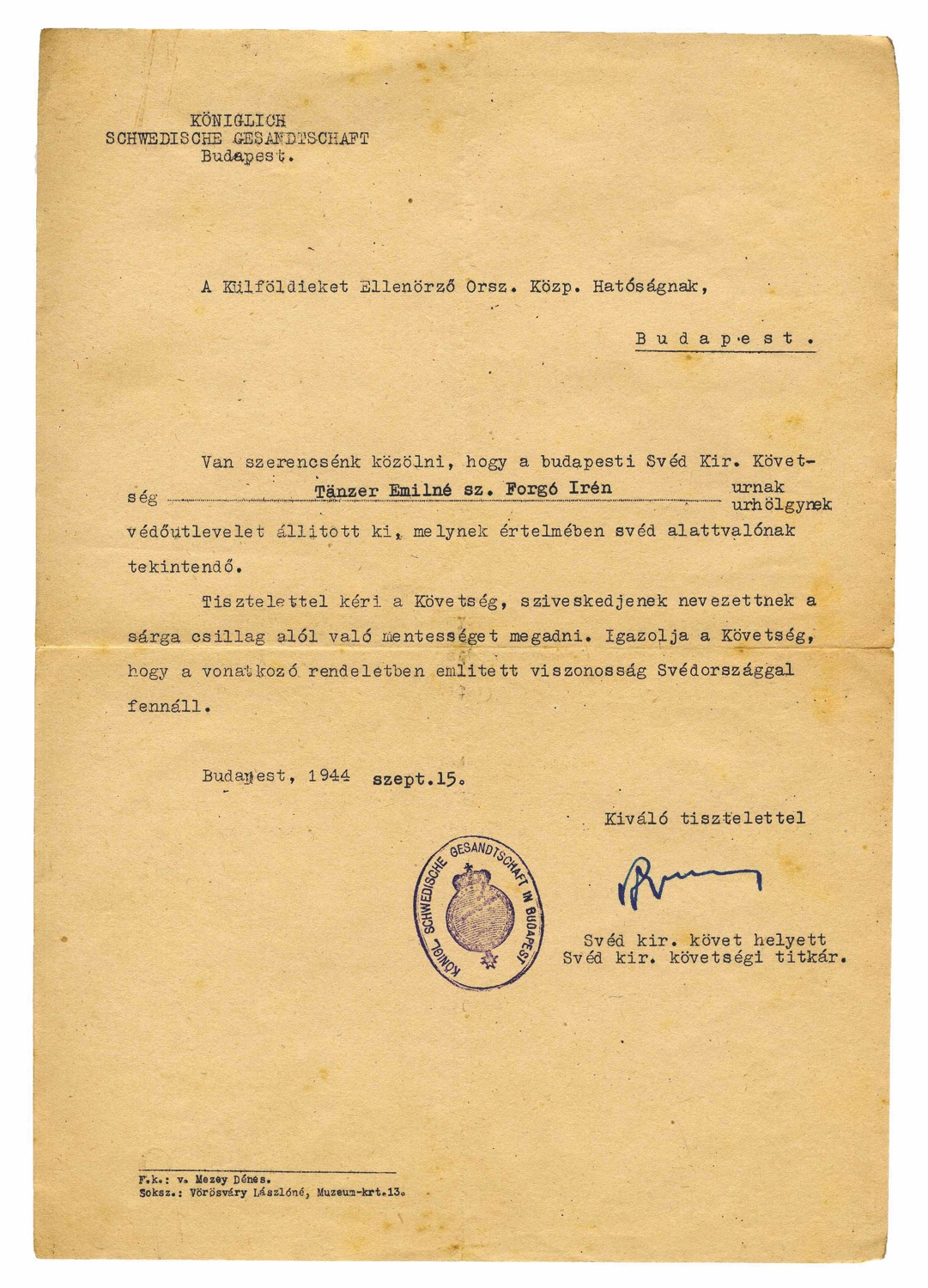
A life-saving document for two Hungarian Jews, signed by the late Swedish diplomat Raoul Wallenberg, has been sold for $13,750, according to a spokesman for Nate D. Sanders Auction of Los Angeles.
The sale brings renewed attention to one of the most elaborate and effective acts by a Christian, backed by his government, to foil the Nazi death machine.
The so-called “protective pass” conferred Swedish citizenship on Jewish siblings Emilne Tanzer and Iren Forgo. The passes spared them the fate of more than 300,000 Hungarian Jews killed by the SS, mainly at Auschwitz.
Specifically, the passes exempted the Jewish bearers from wearing the yellow Jewish star patch,by declaring that they were Swedish citizens awaiting reparation to their homeland.
Though the passes had no actual legal standing, the ruse worked well enough to be accepted by German and Hungarian officials most of the time.
Wallenberg disappeared in early 1945, and it is generally believed that he was arrested when Russian troops wrested Budapest from the German army, and that he died in a Russian labor camp.
In line with its policy, Sanders Auction did not identify the seller or buyer of the historical document.
In addition to issuing “protective passes,” Wallenberg used American and Swedish funds to establish hospitals, nurseries and a soup kitchen for the Jews of Budapest.
According to the Holocaust Encyclopedia, published by the U.S. Holocaust Memorial Museum, Wallenberg was born in Stockholm in 1912, studied in the United States, and in June 1944 was recruited by the U.S. War Refugee Board to travel to Hungary. Given status as a diplomat by the Swedish delegation, Wallenberg’s assignment was to assist and rescue as many Hungarian Jews as he could.
Although completely inexperienced in diplomacy and clandestine operations, Wallenberg led one of the most extensive and successful rescue efforts during the Holocaust.
In addition to issuing “protective passes,” Wallenberg used American and Swedish funds to establish hospitals, nurseries and a soup kitchen. In addition, he designated more than 30 “safe” houses that together formed the core of the “international” ghetto in Budapest, which was reserved for Jews and their families holding certificates of protection from a neutral country.
Spurred by Wallenberg’s example, diplomats from other neutral countries joined in the rescue effort. Swiss Consul General Carl Lutz issued certificates of emigration to some potential emigrants to Palestine.
Italian businessman Giorgio Perlasca, posing as a Spanish diplomat, established safe houses, including one for Jewish children.
Wallenberg’s decision to put his own life at risk to help save Jews was summed up by a friend many years ago who reportedly told Wallenberg that he should worry about his own safety. Wallenberg reportedly responded, “For me, there’s no choice. I’ve taken on this assignment, and I’d never be able to go back to Stockholm without knowing inside myself I’d done all a man could do to save as many Jews as possible.”























 More news and opinions than at a Shabbat dinner, right in your inbox.
More news and opinions than at a Shabbat dinner, right in your inbox.